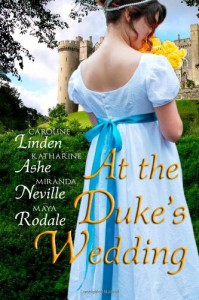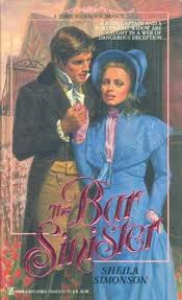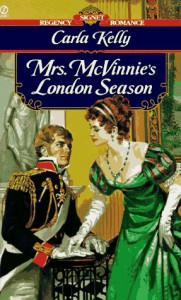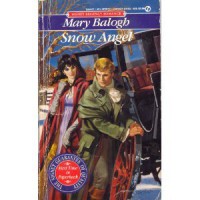
This book has received rave reviews on Amazon and Goodreads from people whose views I respect and normally completely agree with, but not in this case. I read the book to the end, mainly because I wanted to see if I could get as interested and involved in it at any point as other reviewers apparently did. But no, it never involved me in any way and left me feeling completely cold (glad, in fact, that it was over) in the end. Most of the characters are one-dimensional and there is no character development at all. In fact, except for the heroine Emily and Edgar Rankin, the duke's business manager, conscience and friend, none of the main characters, including the hero, a rich and arrogant duke, the hero's two aunts, who set the whole plot up, and Emily's relatives, is in any way attractive as a person. And even Emily behaves rather strangely in a few spots in the story.
The plot is mostly a trainwreck, IMHO. The duke's elderly aunts organize a 2-week house party for the duke to choose a bride, inviting 5 eligible young ladies, along with their families, to attend the party. Emily, the heroine, is the plain poor-relation companion to her cousin, one of the "eligible" girls, who must snag a very wealthy husband ASAP because her father has wasted away his entire inheritance. Meanwhile, Emily falls madly in love with a guy she meets out on a walk in the woods, who very closely resembles her host, the high-handed and arrogant duke, except that he is casually dressed and acts like a normal human being. Emily never once realizes that the guy is, in fact, the duke, neither from his face nor his voice. (The duke, meanwhile, is pretending to Emily that he is actually his bastard half-brother, and leading her on about his attraction to her, meeting her every day in the woods in his "bastard half-brother" persona) Sorry, Emily's gullibility is impossible to believe and the "hero's" behaviour in this is somewhat disgusting.
After this unappealing setup, the plot moves quickly downhill, throwing in all sorts of Regency romance plot cliches (as if there weren't enough to begin with), like a tree limb falling on the duke's head while he's meeting Emily and putting him in a coma, Emily being "ruined" by being found alone with the unconscious duke in a cabin in the woods and thrown out of her cousin's house, the aunts deciding that Emily is, in fact, the best bride for the duke and scheming to bring this about, the duke's mistress putting in an extremely unappealing appearance and putting Emily into a snit, etc etc.
I can't recommend this book.
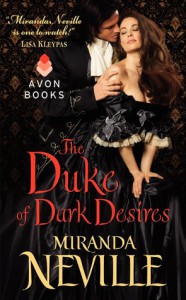
 1
1

 2
2

